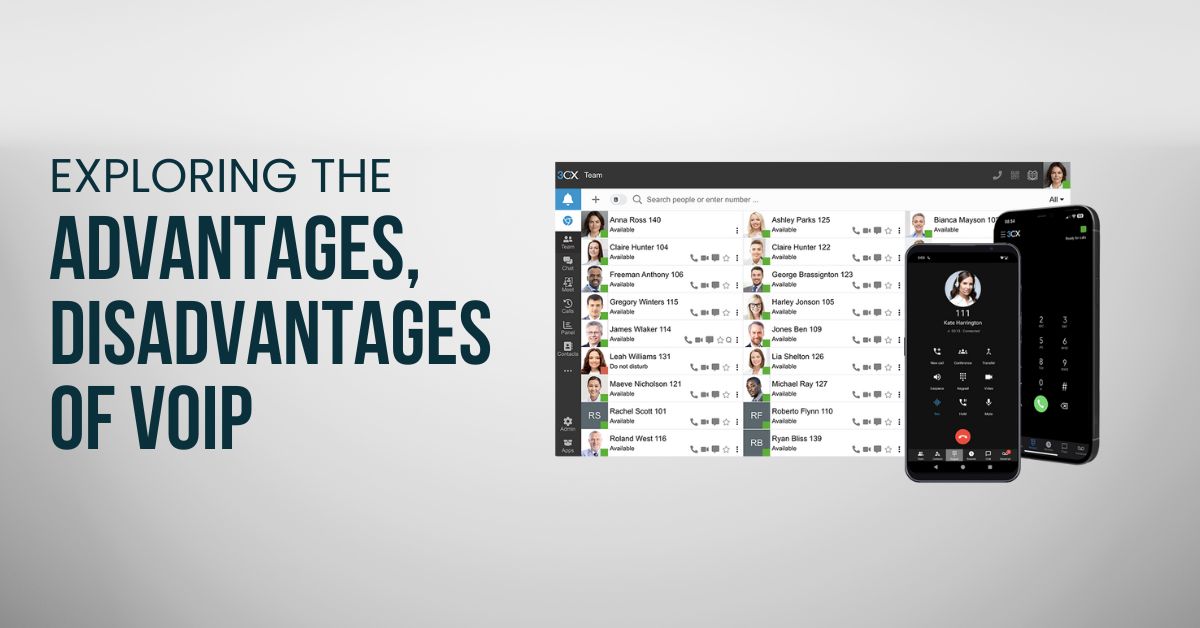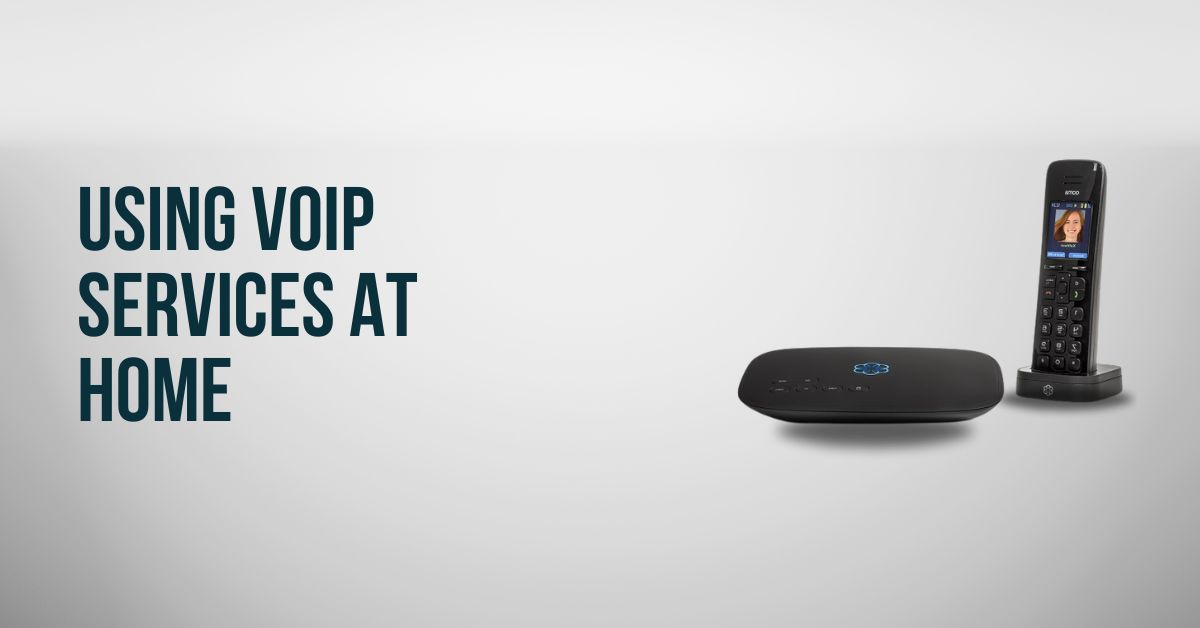Businesses require VoIP phone services for primary communication. This technology brings many benefits of VoIP and voip advantages, making business communication smooth and effective.
However, along with its great advantages, VoIP also has some limitations. This article will thoroughly discuss the benefits of VoIP and VoIP advantages and disadvantages. Let’s dive in.
Top 10 Benefits of VoIP

VoIP(Voice Over Internet Protocol) is a technology that transforms calls over the internet connection. VoIP phone calls receive voice data and convert it into digital files. With VoIP technology, you can maintain communication with just a broadband connection from anywhere. There are various benefits of this technology. The top 10 benefits of VoIP are discussed below.
1. Lower Costs:
Lower cost is one of the benefits of VoIP. It offers significant cost savings compared to traditional phone systems. With VoIP, businesses can leverage their existing internet connections to make calls, eliminating the need for separate phone lines.
This unification not only reduces monthly phone bills but also eliminates expenses associated with maintaining multiple lines, such as installation, hardware, and maintenance costs. Additionally, VoIP often includes features like free long-distance calling and competitive international rates, further reducing communication expenses for businesses. Overall, the lower costs associated with VoIP make it a cost-effective solution for businesses of all sizes.
2. Increased Flexibility:
VoIP offers unparalleled flexibility in communication. Unlike traditional phone systems that tie users to physical phone lines, VoIP allows users to make and receive calls from any device connected to the internet. Whether it’s a desktop computer, laptop, smartphone, or tablet, users have the freedom to communicate seamlessly across various devices.
This flexibility is one of the benefits of VoIP enabling employees to stay connected regardless of their location, whether they’re in the office, working from home, or traveling. By breaking free from the constraints of traditional landlines, VoIP promotes remote work and enhances productivity by empowering employees to communicate effectively wherever they are.
3. Advanced Features:
VoIP systems come equipped with a wide range of advanced features that enhance communication efficiency. These include call forwarding, voicemail-to-email transcription, auto-attendant, video conferencing, and virtual phone numbers. These features empower businesses to streamline their communication processes and improve customer service.
4. Improved Scalability:
VoIP systems are highly scalable, allowing businesses to easily add or remove phone lines as their needs change. Whether scaling up due to business growth or downsizing during lean periods, VoIP systems offer flexibility without the need for costly hardware upgrades.
5. Greater Accessibility:
VoIP extends accessibility beyond landline phone systems. Employees can access their VoIP phone system from anywhere with an internet connection, enabling seamless communication whether they’re in the office, at home, or on the go.
6. Better Voice Quality:
VoIP technology continues to advance, resulting in improved voice quality comparable to or even better than traditional phone systems. With advancements in codecs and network infrastructure, VoIP ensures clear and reliable voice communication.
7. Supports Multiple Communication Channels:
VoIP isn’t limited to voice calls; it supports multiple communication channels, including video calls, instant messaging, and file sharing. This versatility allows businesses to choose the most appropriate communication method for each interaction, enhancing collaboration and efficiency.
8. Increased Security:
While security concerns exist, One of the benefits of VoIP is its systems offer robust security features to protect sensitive communications. Encryption protocols, firewalls, and authentication mechanisms safeguard against eavesdropping, data breaches, and unauthorized access.
9. Improved Disaster Recovery:
One of the benefits of VoIP is its systems are inherently resilient and offer improved disaster recovery capabilities compared to traditional phone systems. With cloud-based VoIP solutions, data redundancy and failover mechanisms ensure business continuity even in the event of natural disasters or network outages.
10. Future-Proof Technology:
VoIP represents the future of communication technology. As traditional phone systems become obsolete and internet connectivity continues to improve, VoIP ensures businesses remain at the forefront of communication innovation. Investing in VoIP today means embracing a technology that will continue to evolve and adapt to future needs.
Exploring the Advantages, Disadvantages of VoIP

VoIP offers numerous advantages, including scalability and adaptability, Integration with Business Applications, and Global Reach and Connectivity that enhance communication efficiency. However, businesses must also consider potential disadvantages such as dependence on internet connection, security concerns, and quality of service issues when implementing VoIP systems. Each voip advantages and disadvantages are discussed below.
Advantages-
1. Scalability and Adaptability:
VoIP systems are highly scalable and adaptable to the changing needs of businesses. Whether scaling up due to business growth or downsizing during lean periods, VoIP allows businesses to easily add or remove phone lines without the need for costly hardware upgrades. This scalability ensures that businesses can adjust their communication infrastructure efficiently and cost-effectively to accommodate fluctuations in demand.
- Integration with Business Applications:
VoIP systems can seamlessly integrate with a variety of business applications and tools, enhancing productivity and streamlining workflows. Integration with customer relationship management (CRM) systems, for example, allows businesses to access caller information and records during inbound and outbound calls, improving customer service and sales processes. Similarly, integration with productivity tools such as email, calendar, and collaboration platforms enables employees to manage communication tasks more effectively within familiar interfaces.
- Global Reach and Connectivity:
VoIP transcends geographical boundaries, offering businesses global reach and connectivity. With VoIP, businesses can establish virtual phone numbers in multiple countries, enabling them to expand their presence and serve international customers more effectively. Additionally, VoIP supports seamless communication between remote teams and satellite offices, fostering collaboration and teamwork across distributed locations.
Disadvantages:
- Dependence on Internet Connection:
VoIP relies on a stable and reliable internet connection for optimal performance. Any disruptions or fluctuations in internet connectivity can result in poor call quality, dropped calls, or loss of service. Businesses in areas with unreliable internet infrastructure may experience challenges with VoIP implementation.
- Security Concerns:
VoIP systems are susceptible to security threats such as phishing, identity theft, and eavesdropping. Without proper security measures in place, sensitive information transmitted over VoIP networks may be vulnerable to interception or unauthorized access. Businesses must implement robust security protocols, including encryption, firewalls, and authentication mechanisms, to mitigate these risks.
- Quality of Service Issues:
While VoIP technology has advanced significantly in recent years, issues related to voice quality and reliability may still arise. Factors such as network congestion, bandwidth limitations, and latency can impact call quality and lead to audio distortion or delays. Businesses must ensure sufficient network infrastructure and bandwidth to support VoIP communications effectively.
Using VoIP Services at Home

Using VoIP services at home has become increasingly popular as individuals seek flexible and cost-effective communication solutions. With VoIP, setting up home communication systems is simple and convenient, requiring only an internet connection and compatible devices.
Users can choose from a variety of VoIP service providers and plans to suit their needs, enjoying feature-rich communication tools like call forwarding, voicemail transcription, conference calling and video calling.
VoIP services enhance mobility and accessibility, allowing users to stay connected from anywhere with an internet connection. Integration with smart home devices further simplifies communication tasks, while scalability options accommodate changing household needs. With reliable and high-quality communication experiences, VoIP services offer households a versatile and convenient communication platform for the modern age.
How to Switch to VoIP

Switching to VoIP can be a straightforward process with careful planning and implementation. The first step is to assess your current communication needs and infrastructure to determine if VoIP is the right solution for your business. Next, research and select a reputable VoIP service provider that offers the features and pricing plans that align with your requirements.
Once you’ve chosen a provider, you’ll need to prepare your network infrastructure by ensuring you have a reliable internet connection with sufficient bandwidth to support VoIP calls. Then, select and configure the necessary VoIP hardware and software, such as IP phones, adapters, and softphone applications.
Finally, coordinate the transition with your VoIP provider, including porting your existing phone numbers and training employees on how to use the new VoIP system effectively. By following these steps and working closely with your VoIP provider, you can seamlessly switch to VoIP and enjoy the benefits of modern, cost-effective communication technology.
Wrapping Up
VoIP technology offers a multitude of benefits that revolutionize communication for businesses and individuals alike. From cost savings and increased flexibility to advanced features and scalability, VoIP provides a versatile and efficient solution for modern communication needs.
While VoIP presents numerous advantages, it’s essential to acknowledge potential drawbacks such as dependence on internet connectivity, security concerns, and quality of service issues.
By carefully considering these factors and implementing appropriate measures, businesses and individuals can maximize the benefits of VoIP while mitigating potential challenges.


